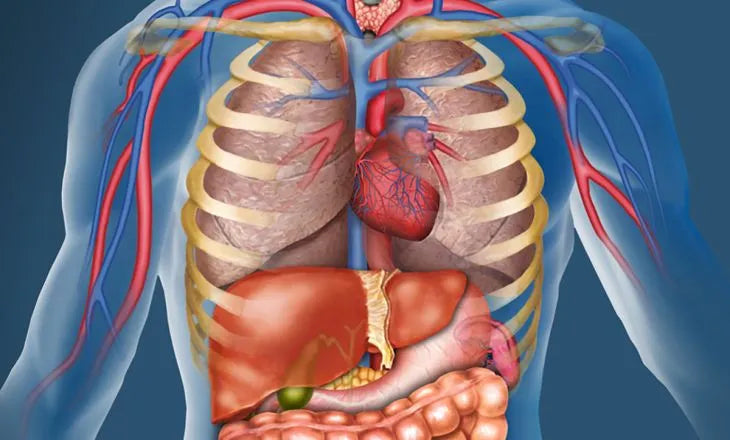
The idea that organs can hold emotional energy and that this can contribute to emotional trauma is a concept found in various traditional and alternative medicine practices. One of the most well-known frameworks for this idea comes from Traditional Chinese Medicine (TCM), which associates specific organs with particular emotions. Here's an overview of some key organs and the emotions they are believed to hold:
1. Liver
Associated Emotion: Anger
- Role in Emotional Health: The liver is thought to regulate the flow of Qi (energy) throughout the body. When the liver's energy is stagnant or imbalanced, it can lead to feelings of frustration, anger, and irritability.
- Physical Symptoms: Headaches, high blood pressure, and digestive issues can be manifestations of liver-related emotional imbalances.
2. Heart
Associated Emotion: Joy
- Role in Emotional Health: The heart is seen as the seat of the mind and spirit (Shen). A healthy heart is associated with feelings of joy and emotional balance.
- Physical Symptoms: Insomnia, palpitations, and anxiety can indicate an imbalance in heart energy.
3. Spleen
Associated Emotion: Worry
- Role in Emotional Health: The spleen is connected to thoughts and intellect. Overthinking and excessive worry can weaken spleen energy.
- Physical Symptoms: Digestive problems, fatigue, and muscle weakness are signs of spleen-related emotional issues.
4. Lungs
Associated Emotion: Grief
- Role in Emotional Health: The lungs are believed to process grief and sadness. They also play a role in the intake and release of energy (Qi) through breathing.
- Physical Symptoms: Respiratory issues, skin problems, and a weak immune system may reflect lung-related emotional disturbances.
5. Kidneys
Associated Emotion: Fear
- Role in Emotional Health: The kidneys are linked to the body's deepest energy reserves and are associated with fear and willpower. Imbalances can lead to feelings of fear and insecurity.
- Physical Symptoms: Lower back pain, reproductive issues, and urinary problems can be signs of kidney-related emotional imbalances.
6. Gallbladder
Associated Emotion: Decision-making
- Role in Emotional Health: The gallbladder is involved in decision-making and courage. Imbalances may result in indecisiveness and timidity.
- Physical Symptoms: Issues such as gallstones, headaches, and difficulty making decisions can be related to gallbladder energy.
7. Stomach
Associated Emotion: Disgust
- Role in Emotional Health: The stomach processes nourishment and is also related to the ability to digest experiences. Imbalances can manifest as feelings of disgust and difficulty accepting situations.
- Physical Symptoms: Nausea, bloating, and digestive disturbances can indicate stomach-related emotional issues.
These ideas suggest that our emotions can really affect our physical health. Treating the organs through methods like acupuncture, herbal remedies, and mindfulness can help balance both our emotions and bodies. Even if Western medicine doesn’t always connect specific emotions to organs, it does agree that stress and emotions impact our health.
Using a mix of holistic practices like yoga, meditation, and good nutrition can help manage stress and improve your overall well-being, possibly easing some of the physical symptoms tied to emotional stress.
